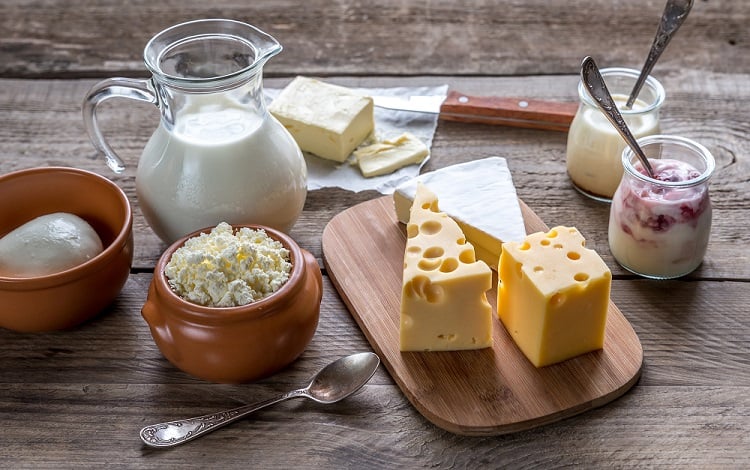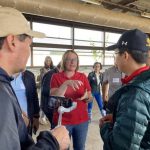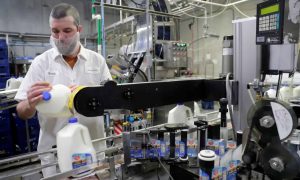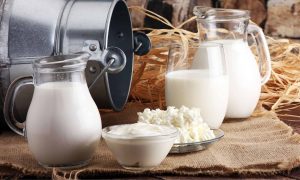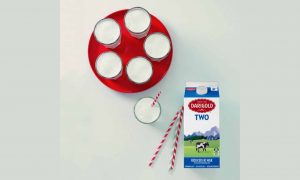
Food preservation has always been of concern for the food industry, which has constantly been looking at new strategies to improve food stability and shelf-life.
Nowadays, sustainability is a key aspect in food production, thus new approaches to food preservation are highly sought-after. In this context, bioprotection represents an effective approach to extend shelf-life, meet consumer demands for healthier, more natural, and short-list-of-ingredient foods as well. From a broader perspective, bioprotection of dairy foods can be one of the answers to the call for the reduction of food loss and waste.
The term “bioprotection” is referred to the extended shelf-life and enhanced food safety of food products enabled by indigenous and/or added microbial cultures. Through competition and production of antimicrobial compounds, these microorganisms help counteract the growth of spoilage strains and pathogens.
Thanks to their long history of safe use and demonstrated antimicrobial activities, lactic acid bacteria (LAB) have a great potential for use as bioprotective cultures. As they generally fit well into the food environment (i.e., dairy products), LAB are considered suitable and safe bioprotective cultures. In addition to understand whether these cultures would be sufficiently effective against pathogens and/or spoilage microorganisms in certain food matrixes, research has to assess the effects on sensory properties once such cultures are introduced in the food.
Bioprotection effectiveness relies on the combination of different microbiological mechanisms, including:
- the ability of cultures to modulate acidity through the production of weak organic acids and thus control it, as a natural effect of fermentation;
- the ability to synthesize metabolites, enzymes and other naturally occurring compounds or products from degradation processes, such as peptides (bacteriocins) deriving from proteolysis;
- competition for limited nutrients, oxygen, space for growth. In 2021, van Gijtenbeek and colleagues reported on a Lacticaseibacillus rhamnosus strain (non-bacteriocinogenic) able to highly limit the growth of Listeria monocytogenes, in creamed cottage cheese. The main mechanism behind this ability was related to competition for manganese, which is an essential element for several microorganisms.
Despite the potential of the combination of such mechanisms, bioprotection must not be considered as an alternative to prevention strategies (hygiene, proper facility layout, cold chain storage), but as an extra tool in addition to these and other preventative factors.
The advisors of ALPHA-SOLUTIONS have a long experience both in LAB cultures development and application in dairy. The full understanding of what these cultures are and what they do can be your gateway to improved sustainability of dairy processing. Get in touch to find out more!
References:
Solvej Siedler, Rafik Balti, Ana Rute Neves, Bioprotective mechanisms of lactic acid bacteria against fungal spoilage of food, Current Opinion in Biotechnology, Volume 56, 2019, Pages 138-146, ISSN 0958-1669. Doi: https://doi.org/10.1016/j.copbio.2018.11.015.
vanGijtenbeek,L.A., Singer, Q., Steffensen, L.E., Neuens, S., Guldager, H.S., Bidstrup, S., Høgholm, T., Madsen, M.G., Glass, K., Siedler, S. Lacticaseibacillus rhamnosus Impedes Growth of Listeria spp. in Cottage Cheese through Manganese Limitation. Foods 2021, 10, 1353. Doi: https://doi.org/10.3390/foods10061353
Siedler S, Rau MH, Bidstrup S, Vento JM, Aunsbjerg SD, Bosma EF, McNair LM, Beisel CL, Neves AR. 2020. Competitive exclusion is a major bioprotective mechanism of lactobacilli against fungal spoilage in fermented milk products. Appl Environ Microbiol 86:e02312-19. Doi: https://doi.org/10.1128/AEM.02312-19.
Laura K F McNair, Solvej Siedler, Joachim M O Vinther, Anna Mette Hansen, Ana Rute Neves, Christel Garrigues, Anna K Jäger, Henrik Franzyk, Dan Staerk, Identification and characterization of a new antifungal peptide in fermented milk product containing bioprotective Lactobacillus cultures, FEMS Yeast Research, Volume 18, Issue 8, December 2018, foy094, doi: https://doi.org/10.1093/femsyr/foy094.
International Dairy Federation, IDF, 2019. Bioprotection. Factsheet 007/2019-09
https://www.fil-idf.org/wp-content/uploads/2019/09/Factsheet-007_2019-Bioprotection.pdf
Marco Loguercio
Senior Technical Consultant
Alpha Solutions, Food and Ingredients
mlo@alpha-solution.it
